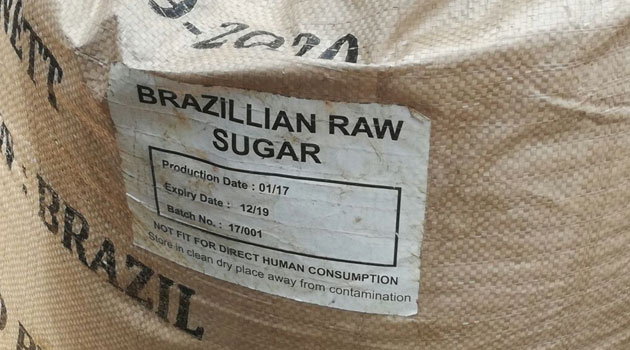Kenyan authorities cracks down on “poisonous” sugar


By Fauxile Kibet
NAIROBI: Kenyan authorities have started a countrywide crackdown to seize imported sugar suspected to contain poisonous substances such as mercury and copper.
According to the officials, the sugar, which was imported from Brazil contains Mercury – which government chemists say is harmful to human beings.
On Monday, police charged three Eastleigh based businessmen with possession and sale of contraband sugar.
Mr Dahir Hassan, Mr Mohammed Ahmed and Mr Ahmed Mohammed faced five counts of selling the dirty white sugar in Eastleigh on June 4, 2018.
According to the prosecutor, three businessmen were in possession of 922 bags of the commodity, valued at $30,000 that did not meet the safety standards of white sugar sold in Kenya.
They denied all the five charges before Nairobi Principal Magistrate Martha Mutuku and were released on $3000 cash bail each.
Kenya Revenue Authority officials also seized 3000 bags of contraband sugar in Meru town in Eastern Kenya.
Meru County commissioner Wilfred Nyagwanga told journalists that the sugar was being repackaged into bags indicating it originated from Zambia and sold to unsuspecting customers.
“These people are pretending to be manufacturers by repackaging the commodity which in itself is a crime. The documents they have presented are fake and we are investigating how sugar purported to have been imported last year is still here,” said the commissioner.
KRA commissioner Mburu Githii while speaking in Nairobi revealed that a multi agency team is conducting raids in godowns in the country. He added that inspections would continue to ensure Kenyans are not exposed to poisonous sugar.
Unlike sugar from the Common Market for Eastern Africa (COMESA) region, which is allowed into the country duty free but with a limit on quantities, sugar imported from Brazil is subject to taxation.
Kenya is estimated to produces about 600,000 tonnes of sugar a year, while annual consumption is 870,000 tonnes with the deficit plugged by imports from the Comesa trade bloc.
The imports are however controlled and importers are required to apply for permits with the country having a quota of 300,000 tonnes annually.